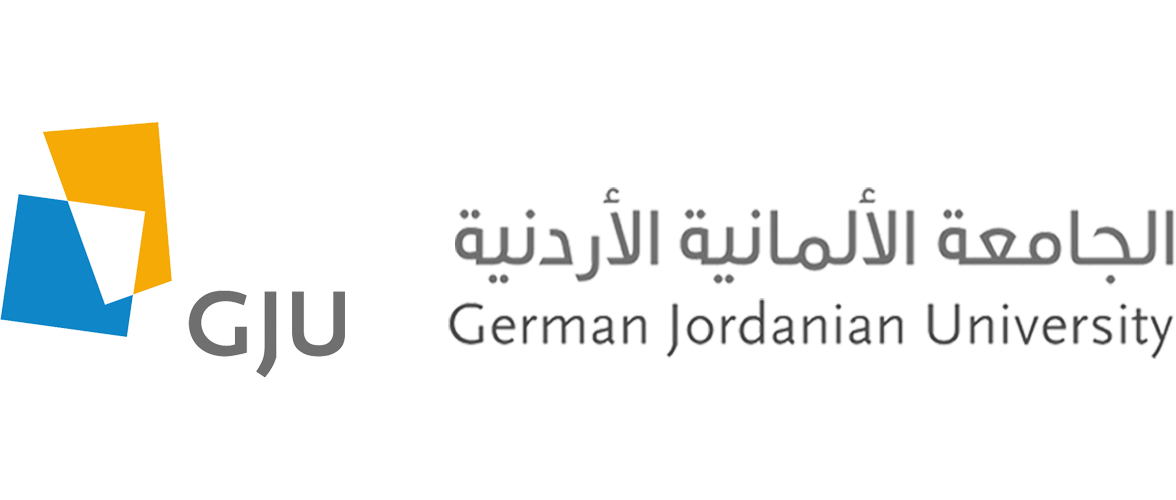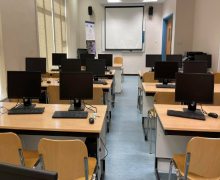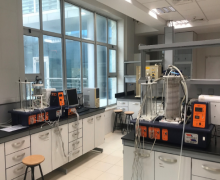Laboratories
Course Catalog
1 Credit hour ( 1 hrs laboratory)
The aim is to let the students Understand that the Engineering graphics is a primary medium for communicating design concepts to manufacturers. It defines the geometry, dimensions and all
Course Catalog
1 Credit hour (3 hrs laboratory)
The aim is to know the difference between anatomy and physiology, composition, development of each structures, the relationship between structure and function. Topics covered include the
Course Catalog
1 Credit hour (3 hrs laboratory)
Software experiments illustrating the basic principles and techniques of digital signal processing in order to process and analyse different physiological signals. Topics covered include
Course Catalog
1 Credit hour (3 hrs laboratory)
The aim is to Understanding the fundamental concepts of the multidisciplinary science of biomaterials in addition to Learning the main mechanical properties of different type of materials(
Course Catalog
1 Credit hour (3 hrs laboratory)
The aim is to the study of the movement of living things using the science of mechanics, also it is concerned with the description of motion and how forces create motion. Moreover,
Course Catalog
1 Credit hour (3 hrs laboratory)
Software experiments illustrating the concepts in image processing and analysis. Topics covered include basics of medical image processing: Grey-Level operations, image subtraction, averaging,
Course Catalog
1 Credit hour (3 hrs laboratory)
Introduce the concepts learned in the course through practical experiments using software application such as Matlab and Simulink. Topics covered include basics of different mathematical
Course Catalog
1 Credit hour (3 hrs laboratory)
The aim of this lab is to gain insight into working of such sensors which can be used in day-to-day life. moreover, the student will take measurements for many sensors using the Arduino Uno and
Course Catalog
1 Credit hour (3 hrs laboratory)
The aim is to know the basic principles of RC circuits, designing and building low pass, high pass and band pass active and passive filters and to find frequency response of various types of
Objective:
the laboratory of fluid dynamics,heat transfer , and chemical reaction engineering is a process material that relates to the theories covered by the materials of heat transfer engineering and chemical reactions. Upon successful
Objective: -To get practical knowledge of current laboratory techniques used in organic chemistry (Melting point determination, Different types of Distillation, Recrystallization, Extraction, Chromatography).
- To be
Objective: The practical part is designed to achieve a working knowledge through examination of some of the basic physicochemical principles covered in the lectures of PCE242 in the delivery of drug and the design of pharmaceutical dosage forms.
Syllabus
Objective: The main objectives of the course are to:
• Provide the knowledge of the “compounding art”, i.e. the art of preparing various Liquid & Semi-solid dosage forms, usually made in a pharmacy (community or hospital)
• Review the contents and objectives
Objective: The main objectives of the course are to:
- To be able to conduct pre-formulation studies: Flowability, Solubility and Solubilization.
- To recognize the manufacturing process and formulation of solid dosage forms.
Objective: Separation Processes Laboratory is a practical course that is related to theories covered in separation processes course. Upon successful completion of this course, the student will be able to:
- Applying Separation concepts, heat and mass transfer
Objectives:
Instrumental Analysis is a science and an art! An unknown compound could be analyzed by more than one technique, simply because that chemical may have different properties. Instrumental Analysis Lab is considered as an advanced lab; the PCE students have to
Objective: The main objective of this course is to teach the students fundamental approaches for experimentally investigating biochemical problems, teach them the theoretical foundations for the used methods, and help them to understand the applicability of the biochemical
Objective:
The goal of this lab is to help the students to understand the fundamental principles of chemistry through performing simple experiments. These principles include physical separation techniques, different types of chemical reactions, Stoichiometry, volumetric
Objectives:
Analytical Chemistry is about studying types and quantities of unknown useful compounds like the key ingredients in food, drugs, cosmetics, and other consumables we usually deal with on daily basis. The analysis is performed practically in Analytical Chemistry
Objective: Students will be able to learn how to work in a microbiological lab, learn sterilization techniques and work aseptically and in clean conditions to avoid contamination. Learn how to deal with microorganisms of different types in the lab. Get basic knowledge of
Objective: Aspen plus lab is the practical part of the pharmaceutical plant design course. In this lab, the student can do a simulation for the entire lifecycle of a process covering the following levels of details: conceptual engineering, basic engineering, detailed engineering






















